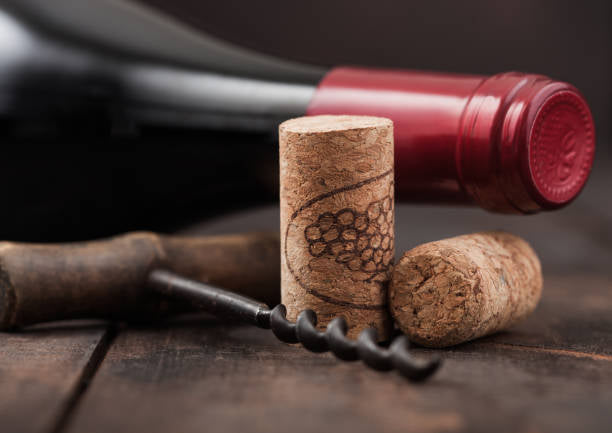
Cork vs Screw Cap: Choosing the Best Closure for Wine Bottles
As you stand in the wine aisle faced with options, one choice extends beyond the label and varietal – the closure. Should you go for the classic pop of a cork or the modern twist of a screw cap? The battle of tradition versus innovation unfolds as we navigate closure choices for wine bottles, considering the unique perspective of WineShippingBoxes.com.
The Traditional Style: The Cork
Ah, the distinctive pop of a cork pulled from a bottle is synonymous with wine culture. For centuries, corks have been the traditional seal for wine bottles, and there's a certain excitement associated with this time-honored closure.
Why Choose Cork
- Breathability: Cork allows a small amount of air to interact with the wine over time, contributing to the aging process. This controlled oxidation can enhance the flavours and complexities of specific wines.
- Elegance and Tradition: Uncorking a bottle's an undeniable charm. The ritual of twisting the corkscrew, the faint pop, and the gentle release of aromas – it's an experience that speaks of tradition and sophistication.
- Aging Potential: Wines intended for long-term ageing often fare well with cork closures. The gradual oxygen exchange through the cork can contribute to the wine's evolution and maturation.
The Modern Style: The Screw Cap
In recent years, the screw cap has emerged as a contemporary alternative to cork closures. Originally associated with more affordable or casual wines, screw caps are making their way into premium selections, challenging the perception that quality is compromised without a cork.
Why Choose Screw Cap
- Consistent Sealing: Screw caps provide an airtight seal, minimizing the risk of cork taint – a common issue associated with mouldy or musty aromas in wine. This ensures that the wine is as the winemaker intended, without the risk of spoilage.
- Convenience and Accessibility: The easy-to-open nature of screw caps appeals to a modern, fast-paced lifestyle. No need for a corkscrew; simply twist and pour. This makes screw caps an excellent choice for picnics, outdoor events, or any situation where convenience is key.
- Preserving Freshness: Screw caps are adept at preserving the freshness and vibrancy of certain wine styles, particularly whites and light reds meant to be enjoyed in their youthful exuberance.
Breaking Down Misconceptions
As with any debate, myths and misconceptions surround the cork vs. screw cap discourse. Let's shed light on a few:
- Quality Indicator: The idea that a cork signifies superior quality while a screw cap implies a lesser wine is an outdated notion. Many renowned winemakers now opt for screw caps to protect the integrity of their wines.
- Aging Potential: While corks contribute to the ageing potential of certain wines, not all wines are meant to age for extended periods. Screw caps are the preferred choice for wines designed to be enjoyed in their youth.
- Environmental Impact: Contrary to popular belief, both closures have environmental implications. Cork is a natural and renewable resource, but its production process can be resource-intensive. On the other hand, screw caps are often made from recyclable materials, but the manufacturing process involves energy consumption.
Hybrid Closures
In the quest for the perfect closure, some winemakers explore a middle ground – hybrid closures. These closures combine the best of both worlds, featuring a screw cap with a thin layer of cork inside. This innovative approach seeks to preserve the convenience of the screw cap while allowing for a controlled level of oxygen exchange through the cork.
Advantages of Hybrid Closures
- Oxygen Management: The thin layer of cork in hybrid closures offers controlled oxygen management, contributing to the wine's development without the risk of cork taint.
- Ease of Use: The screw cap element ensures easy and convenient opening, catering to those who appreciate accessibility without compromising on the traditional touch.
- Versatility: Hybrid closures provide winemakers with a versatile option that can be applied to a range of wines, from those meant for immediate consumption to those with aging potential.
Ultimately, the decision between a cork or screw cap boils down to the characteristics of the wine and personal preferences. Consider the following when making your choice:
- Wine Style: Light and fresh wines may benefit from the consistent seal of a screw cap, while those intended for long-term ageing might find a natural partner in cork.
- Cellaring Plans: If you're building a wine cellar for ageing, understanding the ageing potential of your wines is crucial. Wines with screw caps can age gracefully, but certain styles may still benefit from the slow oxygen exchange facilitated by cork.
- Occasion and Lifestyle: Consider the setting and context in which you'll enjoy the wine. The convenience of screw caps might be preferable for casual gatherings, while the ceremonial aspect of uncorking may enhance a special occasion.
Choose the closure that complements your wine style and preferences. At WineShippingBoxes.com, we invite you to explore the diversity of wine shipping boxes, ensuring that each bottle you uncork is a moment of perfection. Elevate your wine experience with our quality closures – where tradition meets innovation. Cheers to the art of sealing and savoring exquisite wines!

